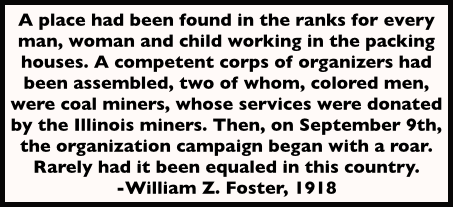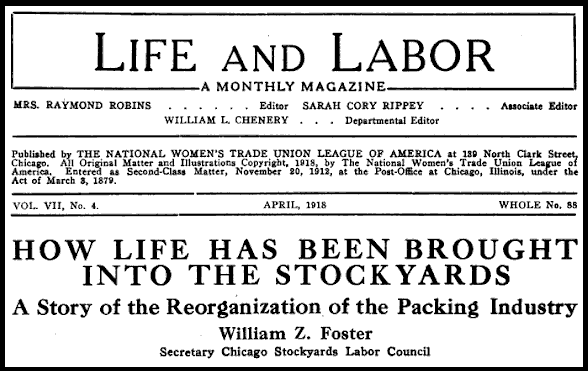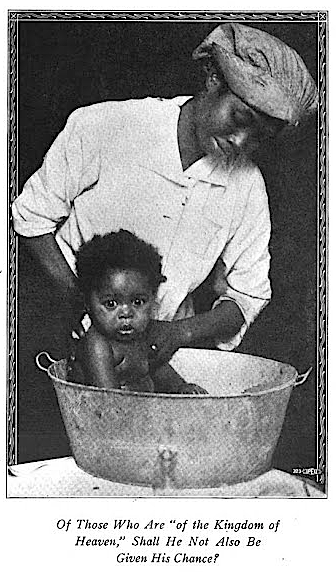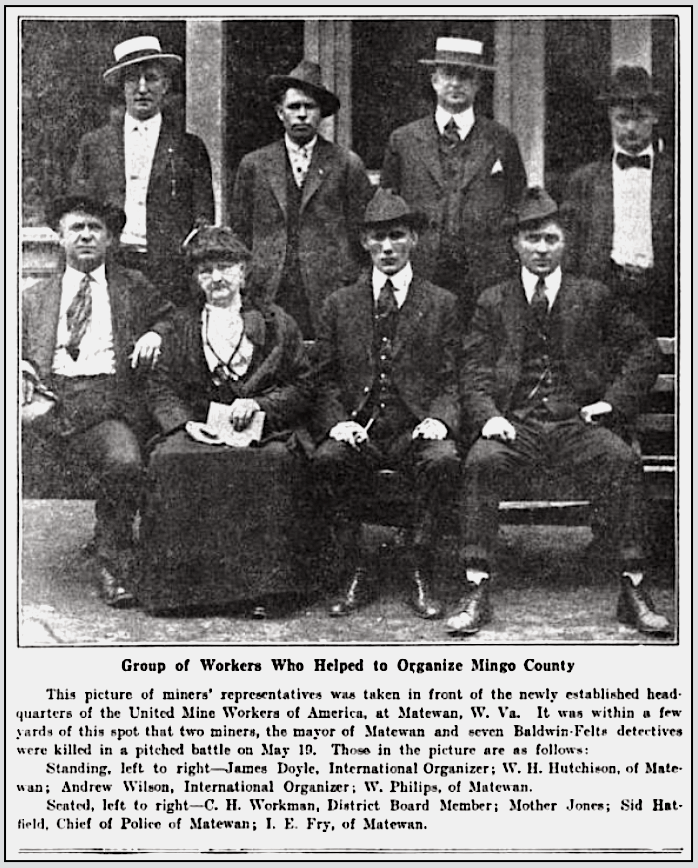
~~~~~~~~~~~~~~~~~~~~~~~~~~~~~~~~~~~~~~~~~~~~
Hellraisers Journal, Friday April 5, 1918
Victory! for Packinghouse Workers by William Z. Foster, Part I
From Life and Labor of April 1918:

The main questions, touching wages, hours and conditions of labor, involved in the Stockyards arbitration hearing before Judge Alschuler, and his decision concerning them, are of overwhelming importance, both in principle and in consequence. Just how far-reaching will be the results of the decision one cannot now forecast. But lips stiffened by poverty will perhaps now learn to smile, and thousands of families will for the first time taste of life.
[Part I of III.]

EIGHT MONTHS ago the vast army of packing house workers throughout the country were among America’s most helpless and hopeless toilers. Practically destitute of organization, they worked excessively long hours under abominable conditions for miserably low wages. Hope for them indeed seemed dead. But today all this is changed. Like magic splendid organizations have sprung up in all the packing centers. The eight hour day has been established, working conditions have been improved and wages greatly increased. From being one of the worst industries in the country for the workers the packing industry has suddenly become one of the best.
The bringing about of these revolutionary changes constitutes one of the greatest achievements of the Trade Union movement in recent years. A detailed recital of how it occurred is well worth while.
Since the great, ill-fated strike of 1904 the packing trades unions had put forth much effort to re-establish themselves. But, working upon the plan of each union fighting its own battle and paying little or no heed to the struggles of the rest, they achieved no better success than have other unions applying this old-fashioned and unscientific method in the big industries. Complete failure attended their efforts. No sooner would one of them gain a foothold than the mighty packers, almost without trying, would destroy it.
The logic of the situation was plain. Individual action had failed. Possibility of success lay only in the direction of united action. Common sense dictated that all the unions should pool their strength and make a concerted drive for organization. Therefore, when on Friday, July 13, 1917, exactly thirteen years after the calling of the big strike, Local No. 453 of the Railway Carmen proposed to Local No. 87 of the Butcher Workmen that a joint campaign of organization be started in the Chicago packing houses, the latter agreed at once. The two unions drafted a resolution asking the Chicago Federation of Labor to call together the interested trades and to take charge of the proposed campaign.
Continue reading “Hellraisers Journal: William Z Foster on the Alschuler Award: “How Life Has Been Brought into the Stockyards,” Part I” →
 ———-
———-



